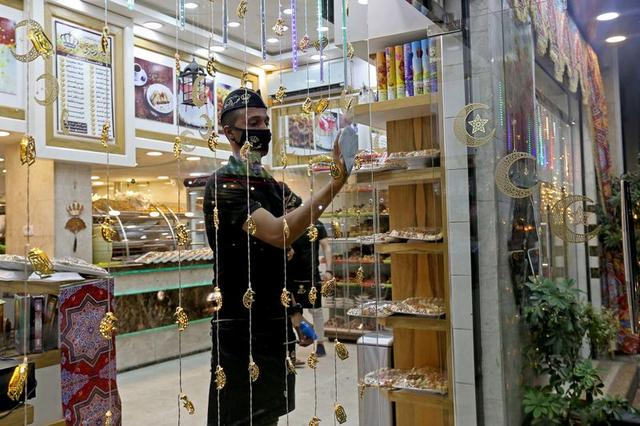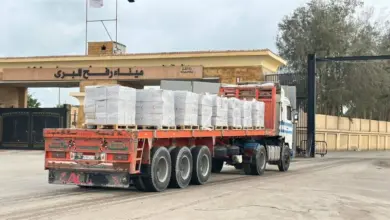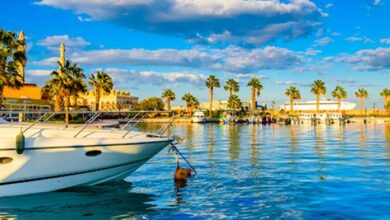
GAZA/JERUSALEM (Reuters) — The electric lanterns and ornate decorations of Ramadan would normally be hanging in the streets of Gaza, the West Bank and east Jerusalem by now, but not this year amid coronavirus restrictions and growing economic woes.
The holy fasting month is expected to start on Friday but, as elsewhere, Palestinians this year are facing the prospect of celebrations without the usual large gatherings for family meals or evening prayers, known as Tarawih.
And the same closures that are set to dampen the mood are also suppressing the economy — Palestinian officials have ordered the closure of schools, wedding halls, restaurants and mosques, sending tens of thousands into unemployment.
With two deaths and 335 infected cases reported, different coronavirus regulations have been imposed by Hamas in Gaza and the Palestinian Authority in the West Bank and by Israel in East Jerusalem, where Muslim religious authorities have stopped worship at the Dome of the Rock and Al-Aqsa Mosque, the third holiest place in Islam.
“There are no worshippers, there are no people, and the closure of Al-Aqsa Mosque has a great influence on the Palestinian people and on the people of Jerusalem in particular,” said Ammar Bakir, a resident of east Jerusalem.
Tens of thousands would usually pray in Al-Aqsa in Ramadan, rising to hundreds of thousands in the final days. Instead prayers will be broadcast from inside the mosque.
“Such a decision was the first in 1,400 years, it is tough, and it pains our hearts,” said Sheikh Omar Al-Kiswani, the director of Al-Aqsa Mosque.
Gaza
In Gaza, with no confirmed coronavirus cases outside quarantine centers, Hamas said a full lockdown was not yet needed.
Customers still flock to markets and stores display the dates, cheese, pickles, nuts and other snacks favored during Ramadan meals
But with families saving money in case of an outbreak, many are just window shopping.
“People will be very cautious to visit one another because of the coronavirus crisis,” said restaurant owner Anas Qaterji.
“People are coming to the market to waste time, they are entertaining themselves after the cafes are closed,” said Sameh Abu Shaban, 57, who owns a store selling dates and sweets. “No-one is buying.”
West Bank
In the West Bank the Palestinian Authority has declared a state of emergency, but a full lockdown has been eased to allow some businesses resume partial operations, amid predictions of a 50 percent fall in revenue.
“It is a sad Ramadan,” said Maher al-Kurdi, a supermarket owner in Hebron.
“Usually shops would be crowded with large numbers of people. And mosques are closed, which would spoil the flavor of Ramadan,” he said.
___
By Nidal al-Mughrabi, Sinan Abu Mayzer
Writing by Nidal Almughrabi; Editing by Giles Elgood
Image: A Palestinian worker cleans the window of a sweet shop ahead of the holy fasting month, amid concerns about the spread of the coronavirus disease (COVID-19), in the southern Gaza Strip April 22, 2020. (REUTERS/Ibraheem Abu Mustafa)




